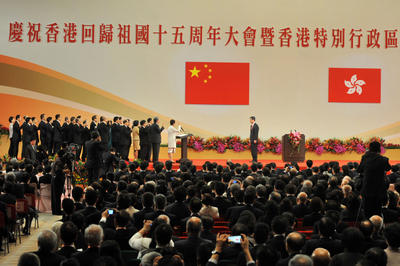Hong Kong does not qualify as a full-fledged democracy even if it has been moving in this direction slowly and unevenly. In some respects, it is saddled with the worst of both worlds: authoritarian rigidity and democratic disarray. This problematic combination leads to a host of ambiguities, generates substantial institutional strains, saps community confidence, and undermines political discipline.
Some of Hong Kong’s contradictions are becoming manifest in the regulatory domain, particularly in relation to the pricing of utility services. Hong Kong’s supposedly non-interventionist government has long played an active role in this area by overseeing both the entry of businesses into industries and the price-setting mechanism.
For these reasons, corporate entities and other players (such as taxi drivers) in industries such as electricity supply and transport services have not been accorded the freedom to set their own prices. Rather, this power has traditionally been placed in bureaucratic hands, subject to mild constraints emanating from Hong Kong’s consultative government. There have been slight modifications since the legislative council gained a measure of autonomy and its members started occasionally flexing their feeble muscles. The system has consequently become more open, but has also lost some of its previous coherence.
The industries in question display monopolistic or oligopolistic tendencies. By virtue of their resources, size, strategic positioning and access to the bureaucratic establishment they also enjoy considerable political power. In some respects they may even be considered an integral part of that establishment. By contrast, most customers are poorly equipped to operate as a countervailing force individually and lack effective organisational channels to collectively pressure utilities companies to change their business practices.
Formulas for setting utility prices are shaped by considerations of efficiency and equity. Over the years these formulas have been applied with a degree of consistency and have proved to be workable, even if they could be refined to enhance their effectiveness in terms of equity and transparency, rather than merely efficiency. Yet this may turn out to be a challenge in an environment where residues from an authoritarian form of governance have experienced considerable erosion of legitimacy, and are thus prone to succumb to populist rhetoric. An associated problem is that the key actors of Hong Kong’s nascent democracy are too preoccupied with the daily hazards of political life to focus on fundamental strategic issues.
Consequently, the price-setting structures are more likely to unravel than to be re-engineered with a view to better meeting relevant performance criteria. The pressure currently exerted on the Mass Transit Railway Corporation (MTRC) to offer an array of concessionary fares to an increasing number of segments of the community is a case in point. Such ‘discriminatory’ pricing is undesirable on several grounds, most importantly because it blurs the distinction between commercial operations and social services. If it is to maximise long-term benefits to stakeholders, including the public, the MTRC should function like a business. The pursuit of social justice in the form of redistribution should be left to the government. The latter could offer transparent subsidies directly to the targeted groups or indirectly through the MTRC. The persistently inadequate performance of the mainland’s state-owned enterprises is a poignant reminder of the adverse implications of failing to draw a clear line between private enterprise, regulated sensibly where appropriate, and social welfare.
Unfortunately there is little evidence that the new Hong Kong Chief Executive, Leung Chun-ying, is aware of these issues which require careful dissection of existing regulatory mechanisms and options for the future. As matters stand, he appears to be principally concerned with creating new government bureaus and administrative positions. One possibility worth exploring would be to set fully autonomous regulatory bodies in charge of setting prices in accordance with clearly articulated criteria, and to review them periodically in an authoritative and open fashion.
Such bodies could be susceptible to capture by special interests — ever-present in Hong Kong — and this vulnerability would have to be taken into account by those engaged in the process of designing these organisations. But this is not completely unfamiliar territory: much has been learnt from devising the so-called non-majoritarian institutions, such as central banks and judicial organs. Though part of the democratic landscape, these institutions are relatively insulated from the partisan pressures buffeting their representative counterparts. This knowledge can arguably be put to good use in choosing the best model for utilities pricing in Hong Kong.
Miron Mushkat is Professor of Economics and Finance at the joint Syracuse University-City University of Hong Kong Asia-based programme, Professor of Global Finance and Regulation at the Chinese University of Hong Kong and senior economic adviser in the investment management industry.

